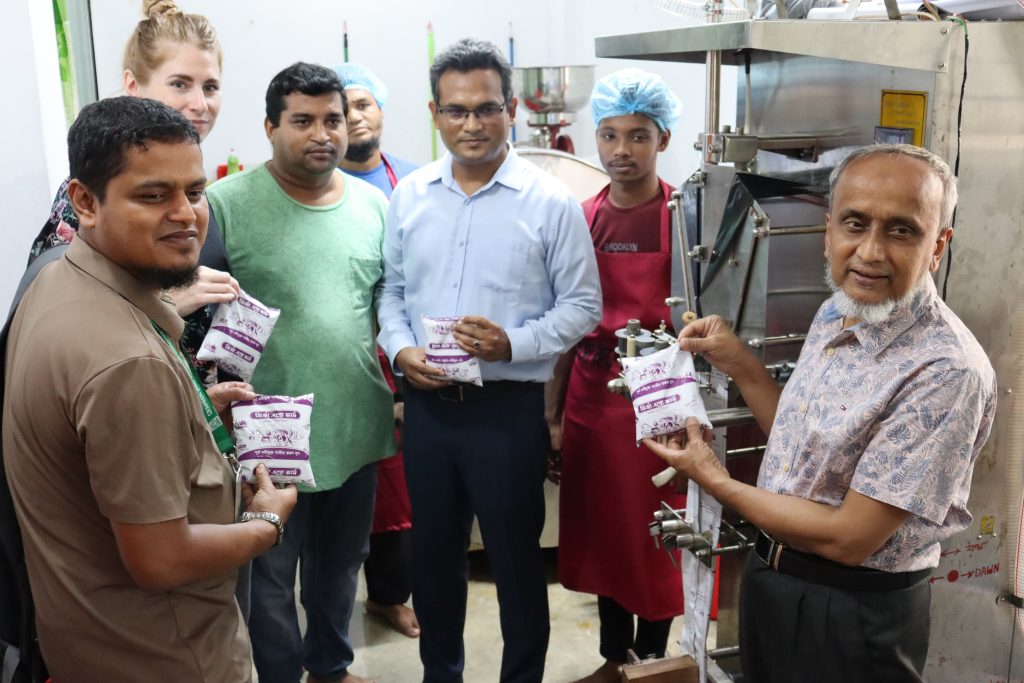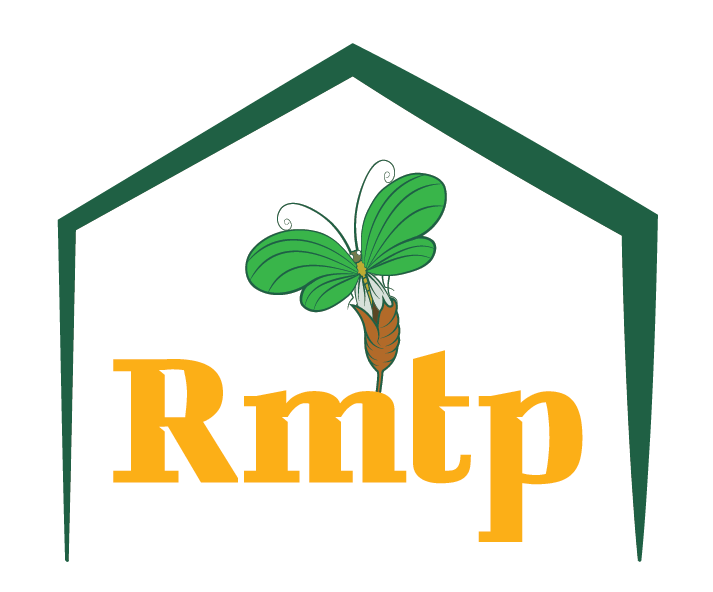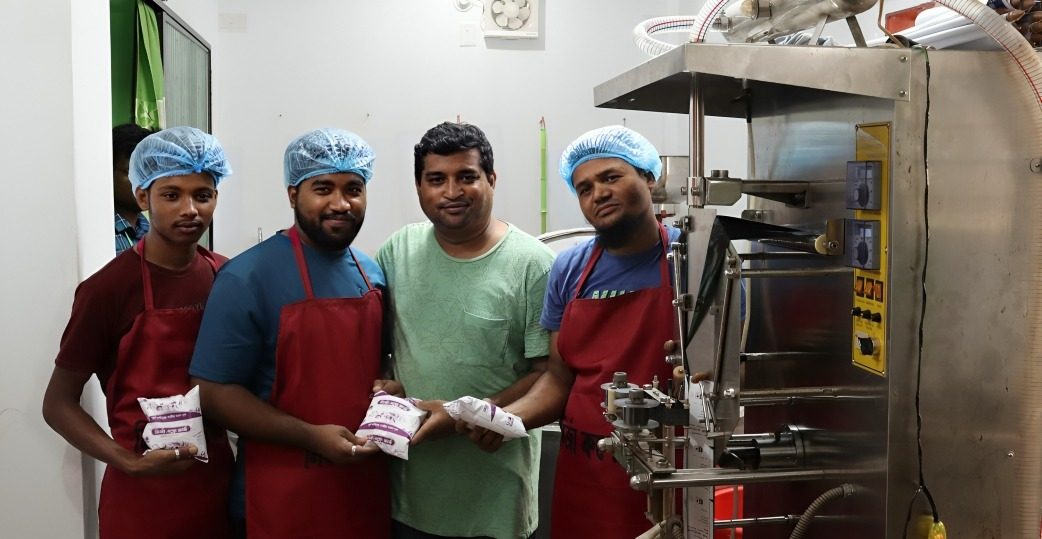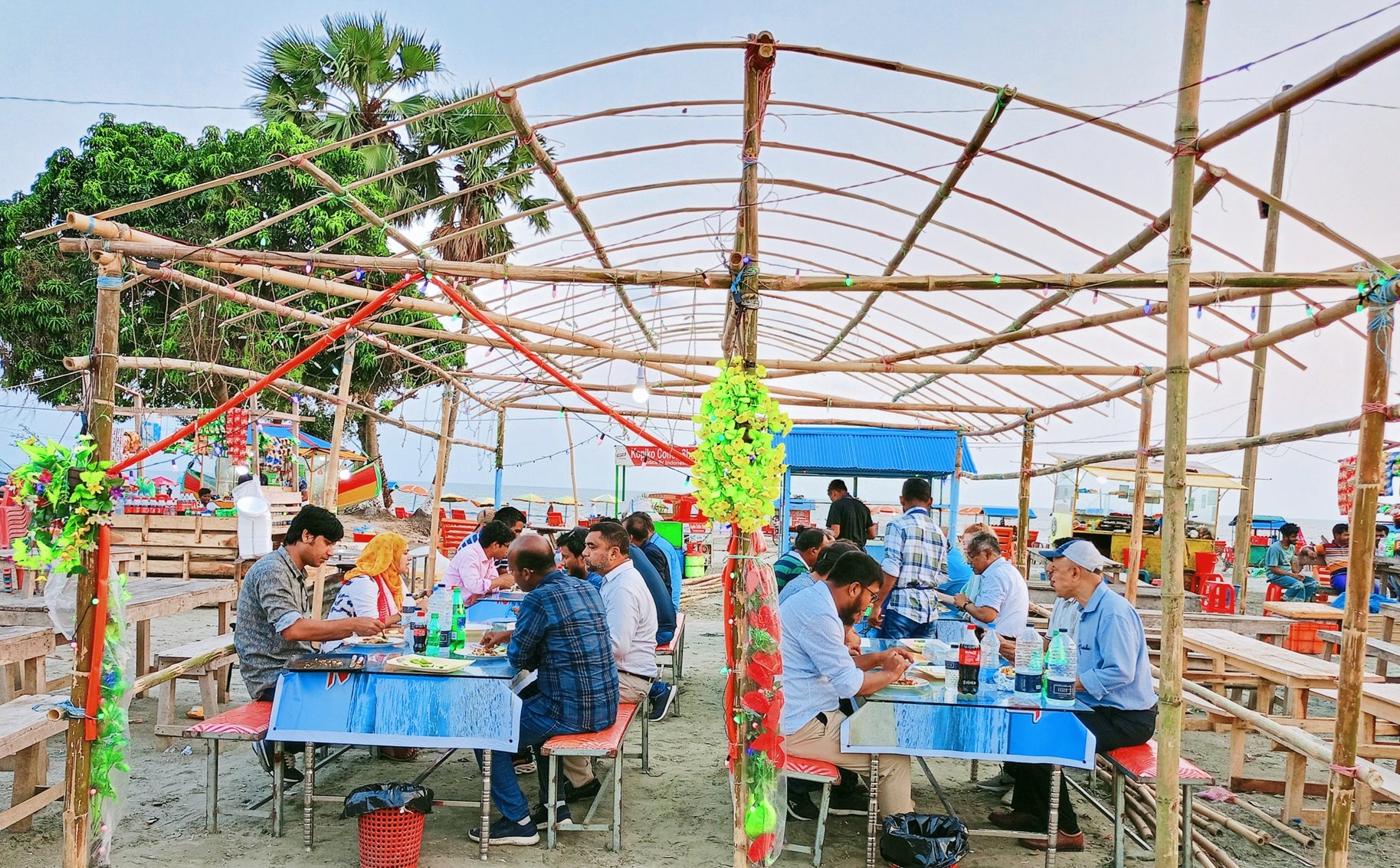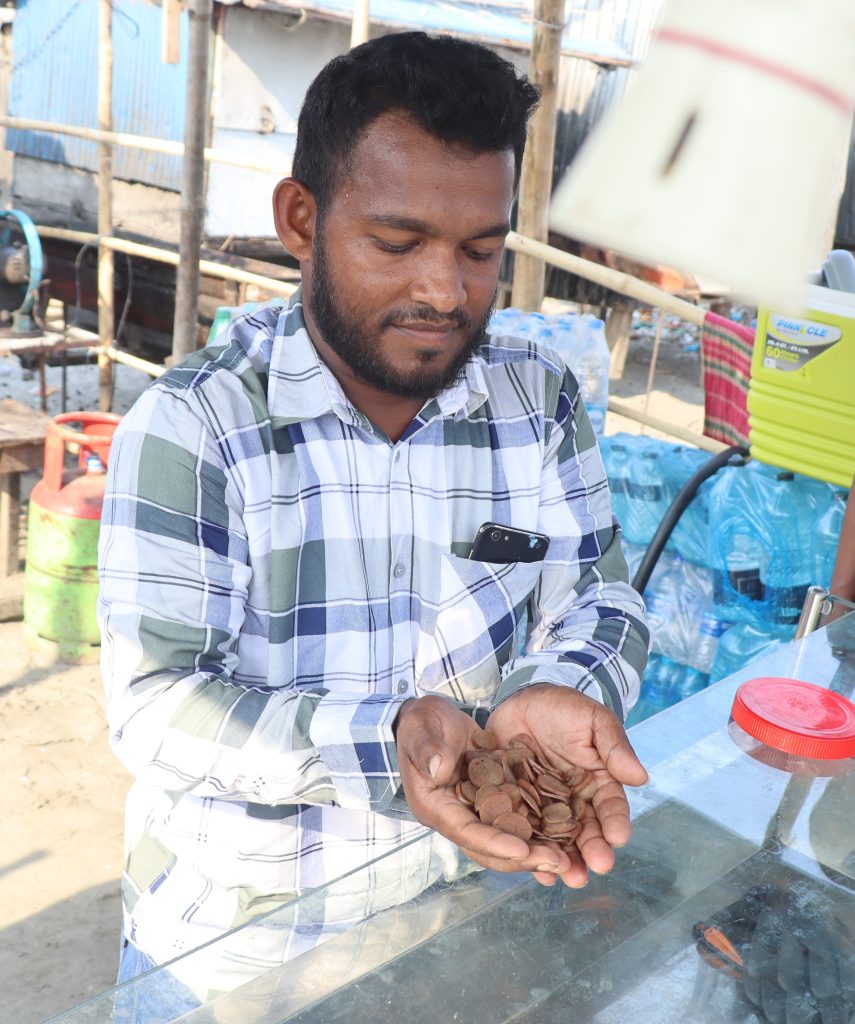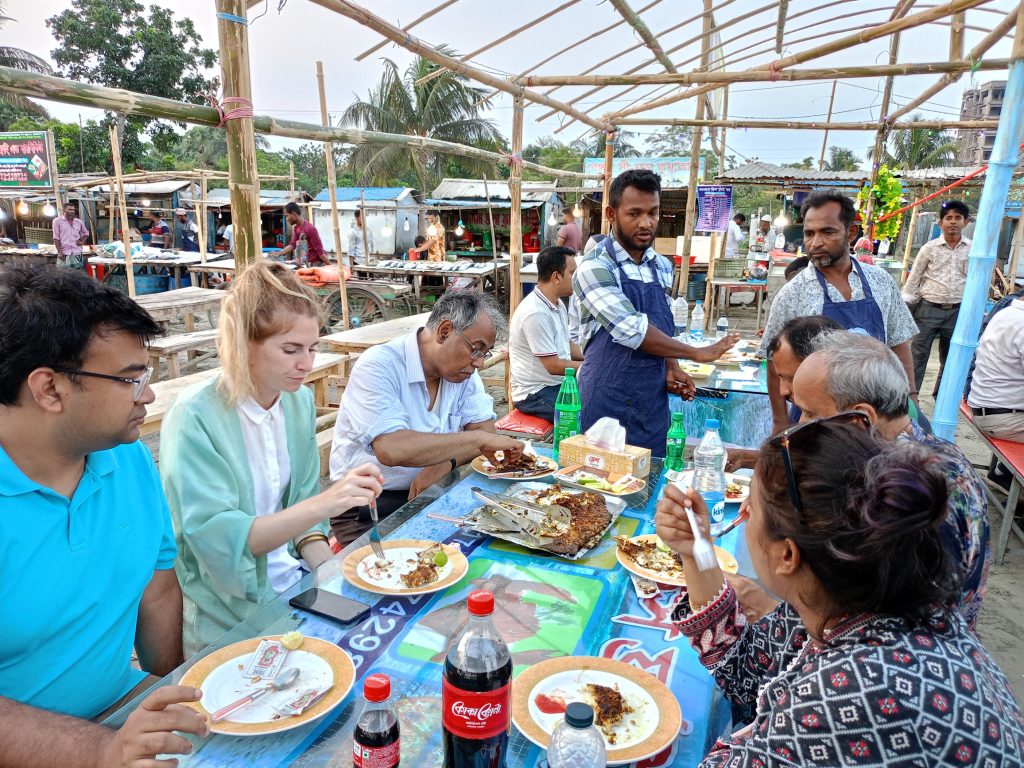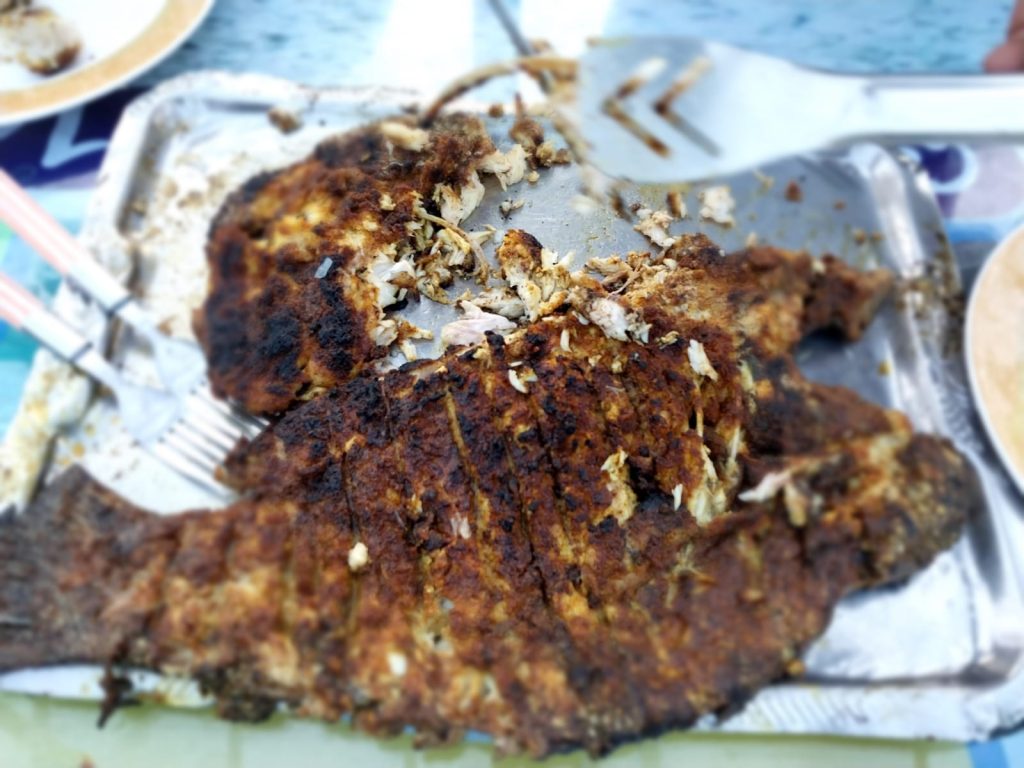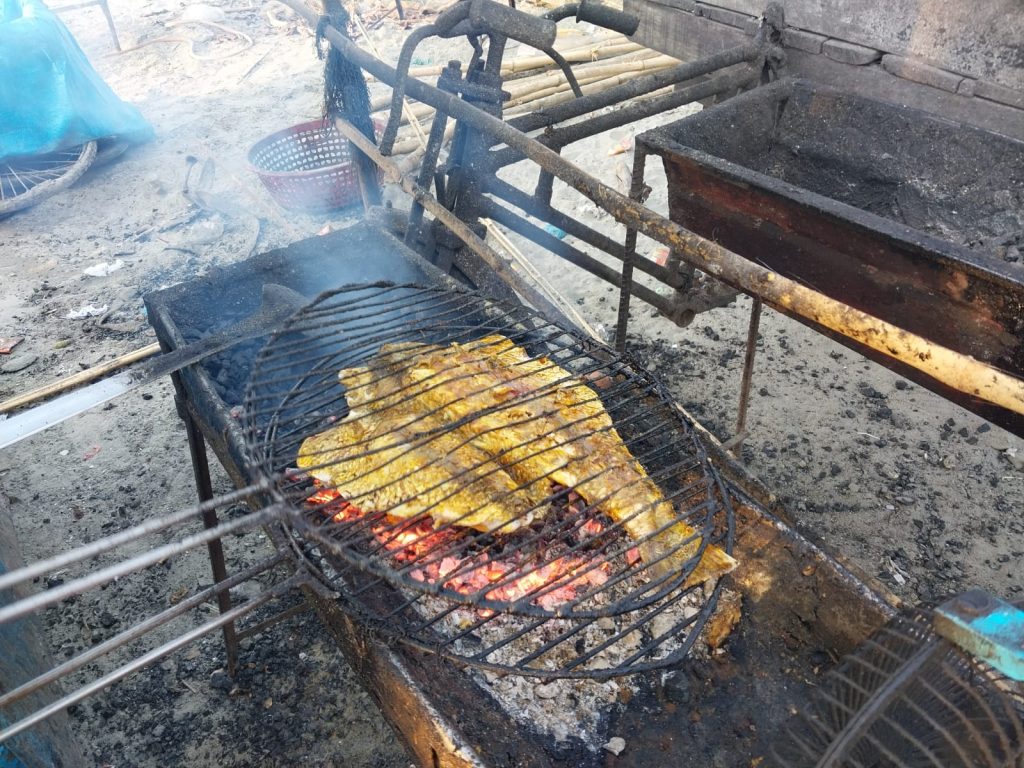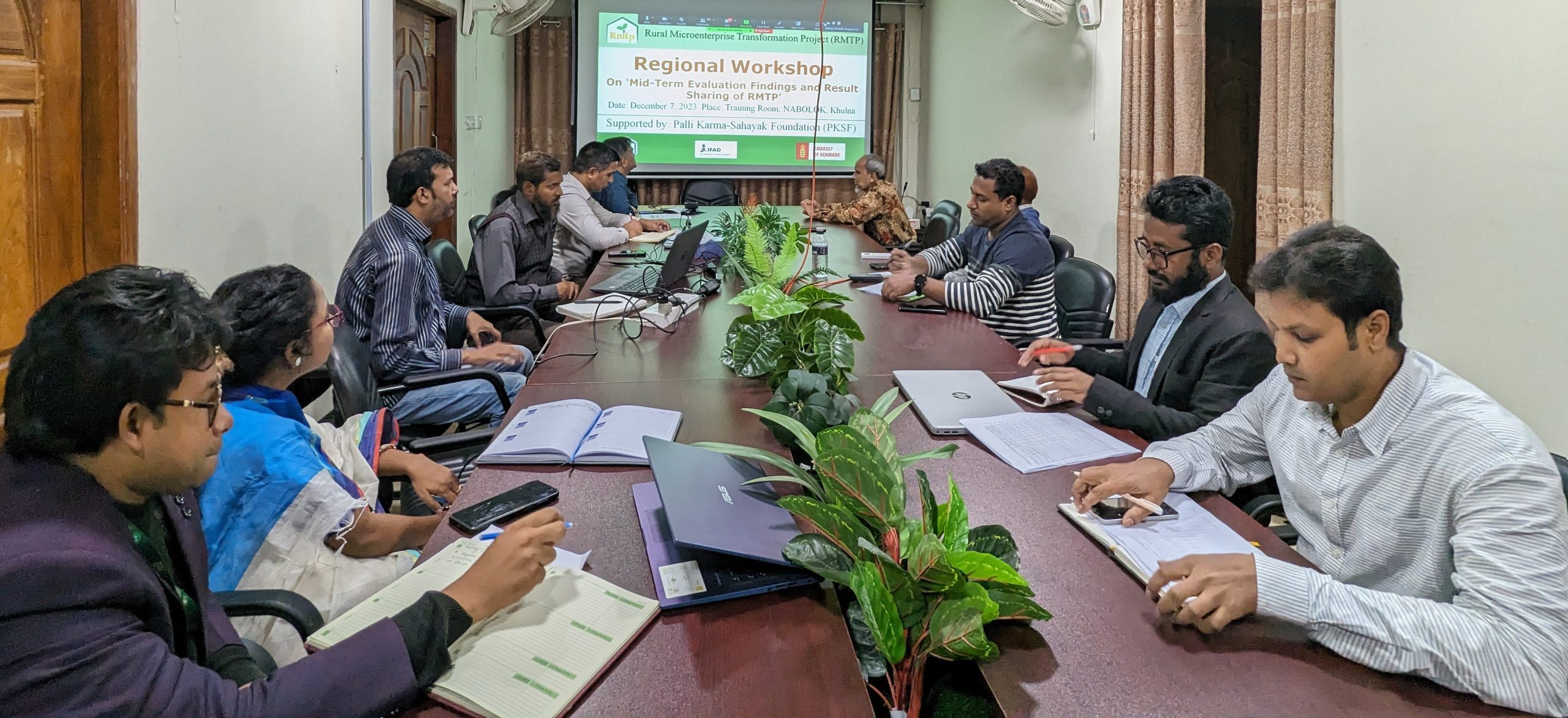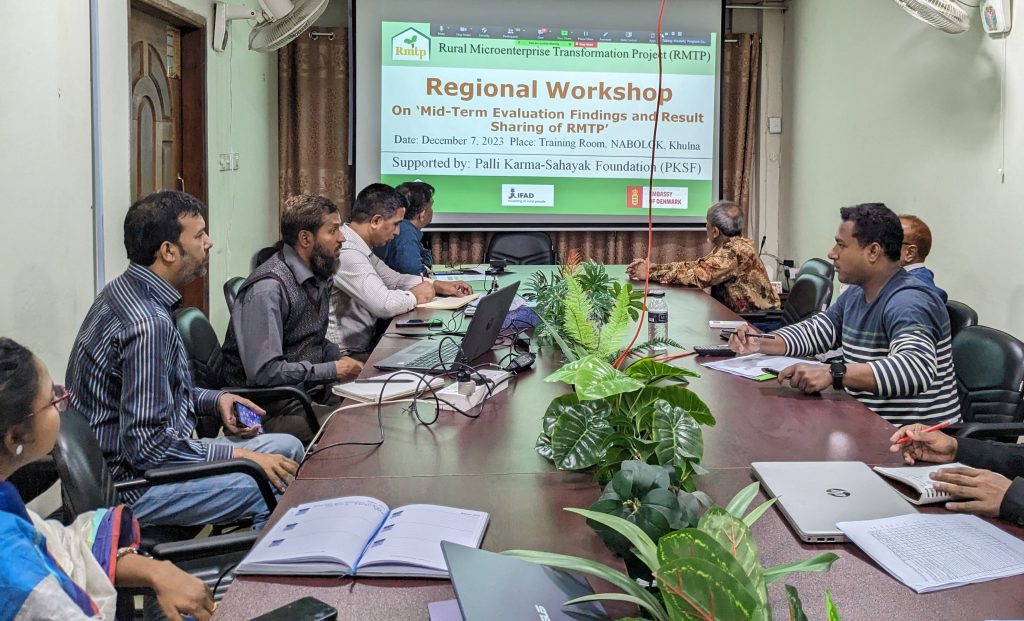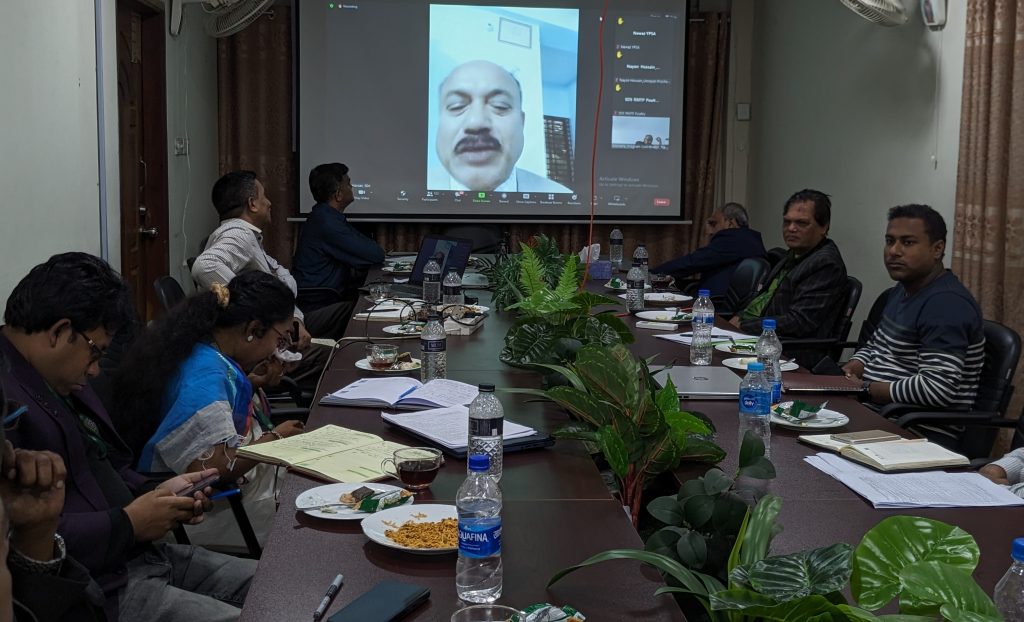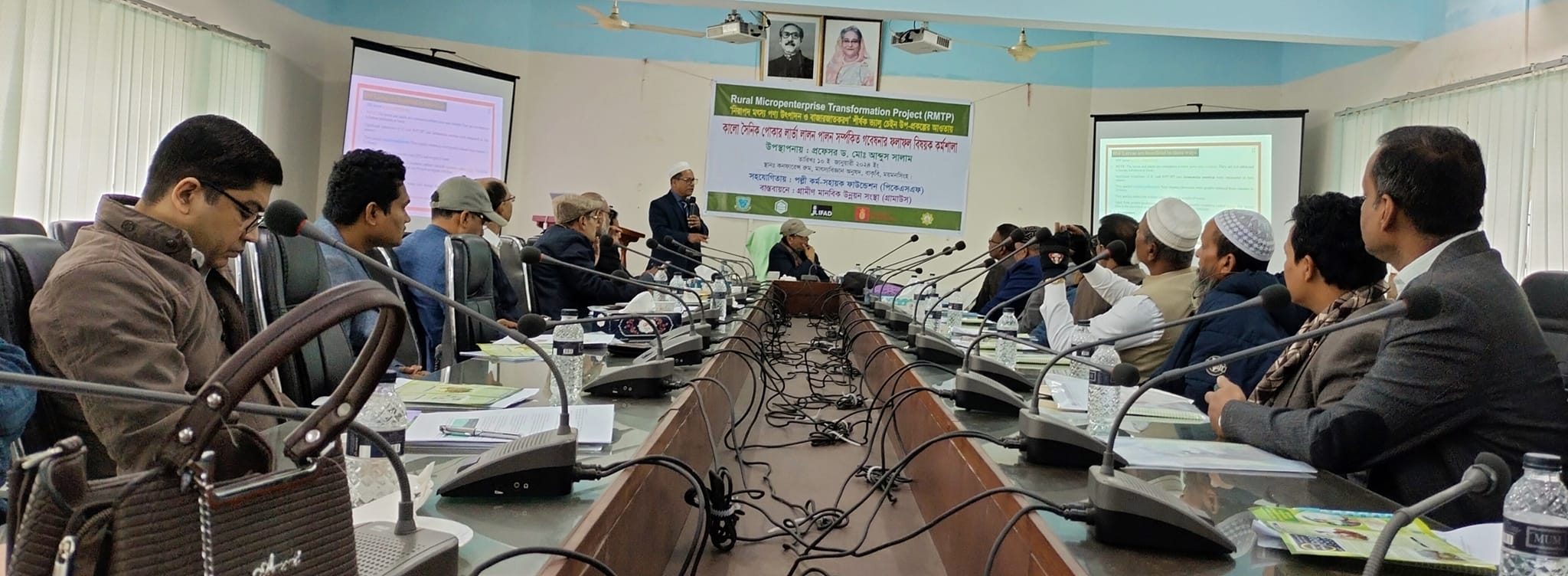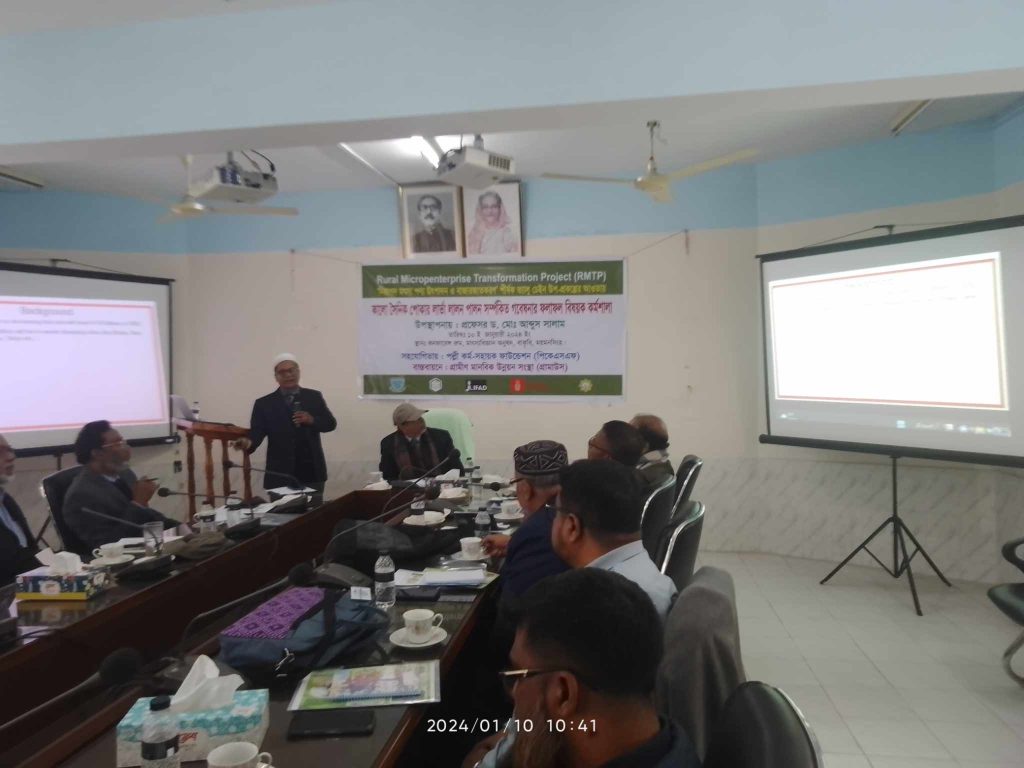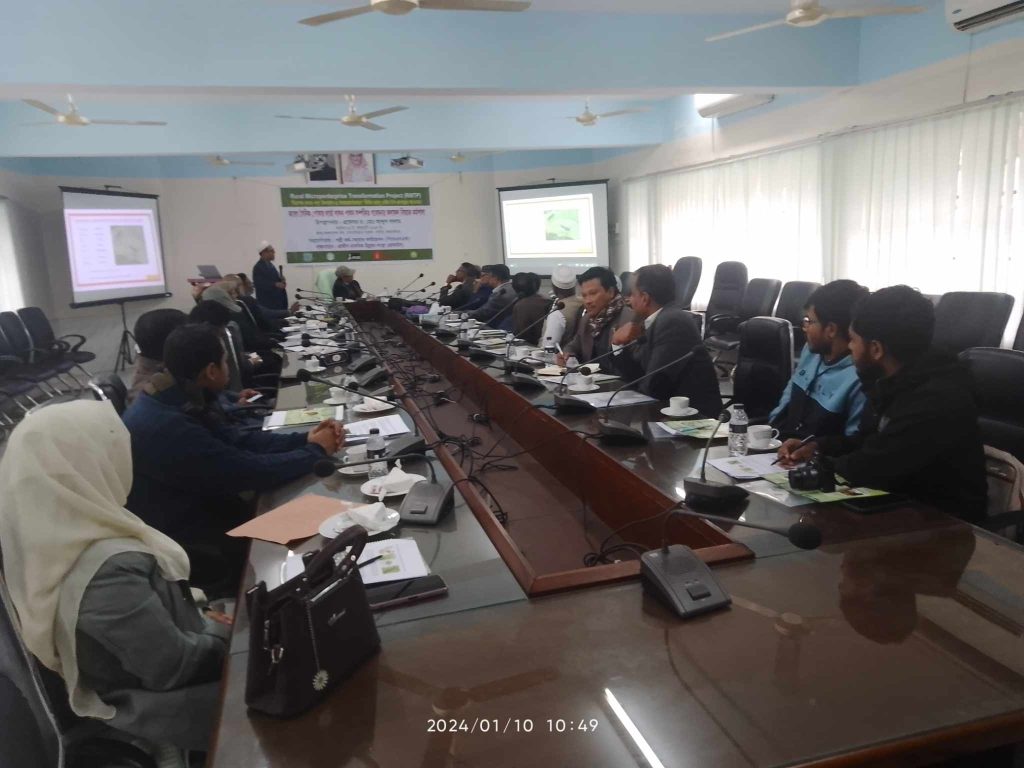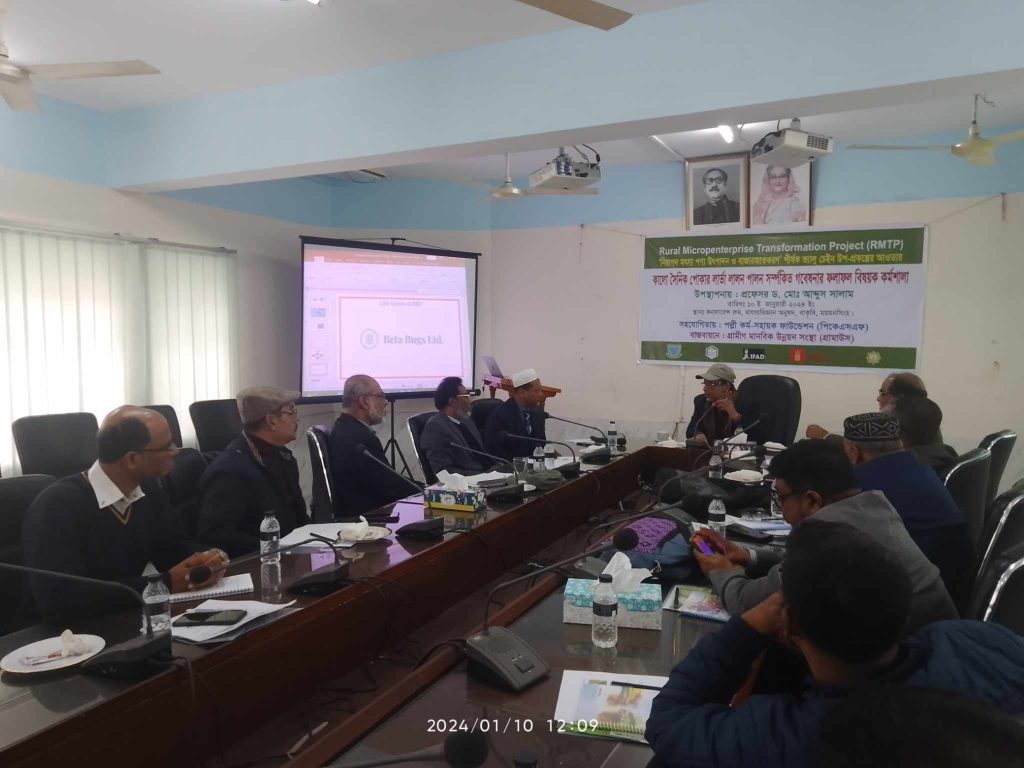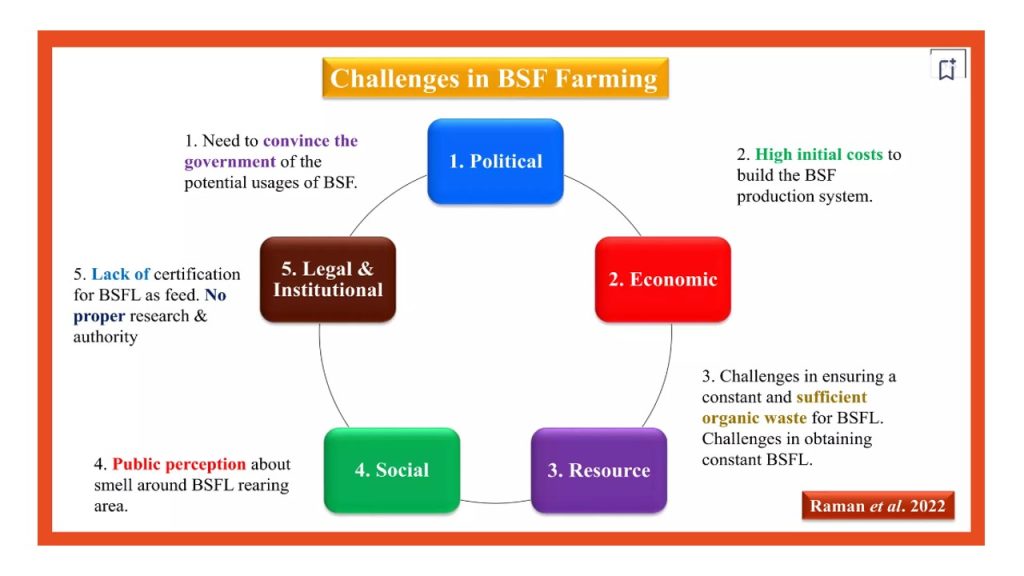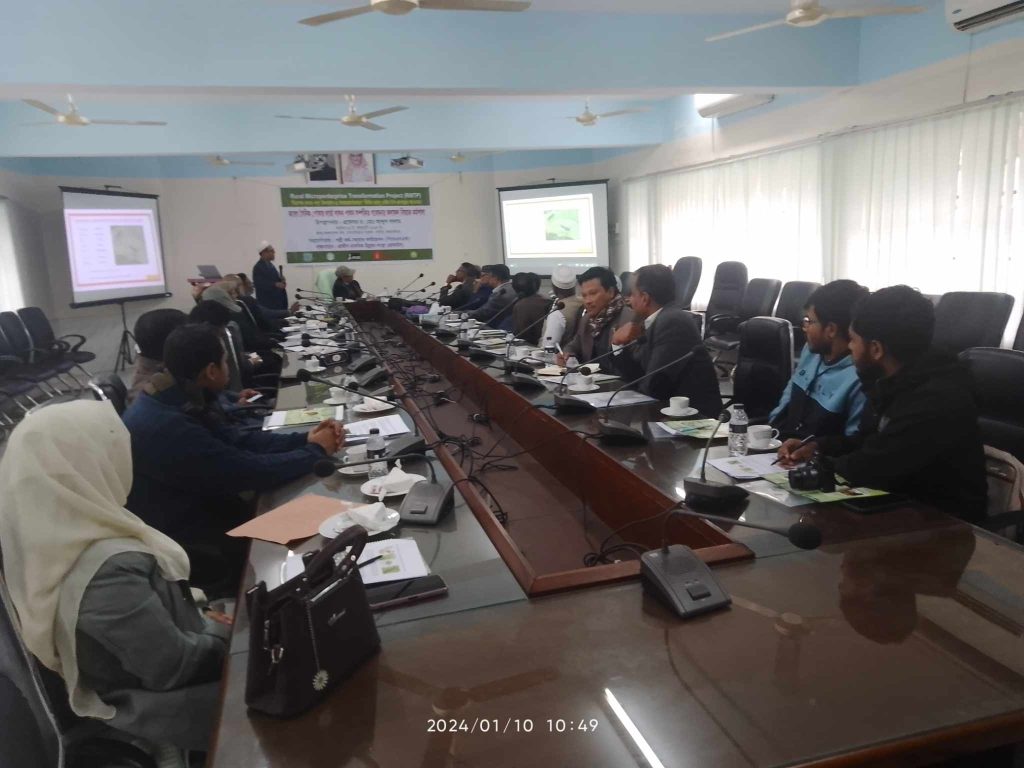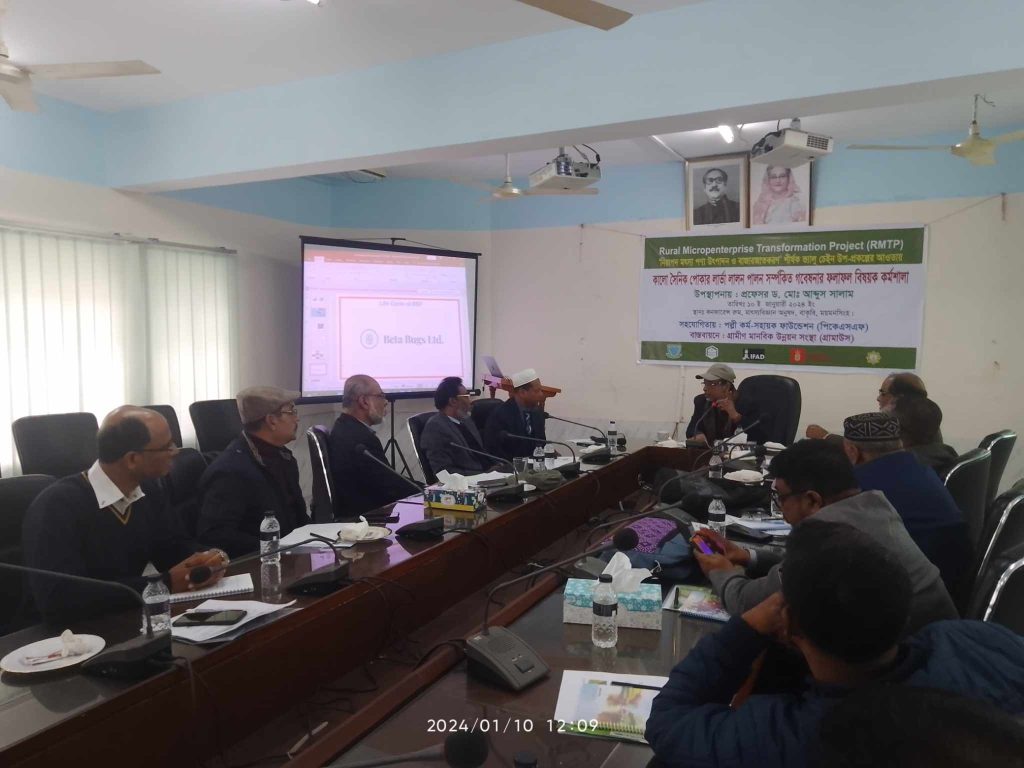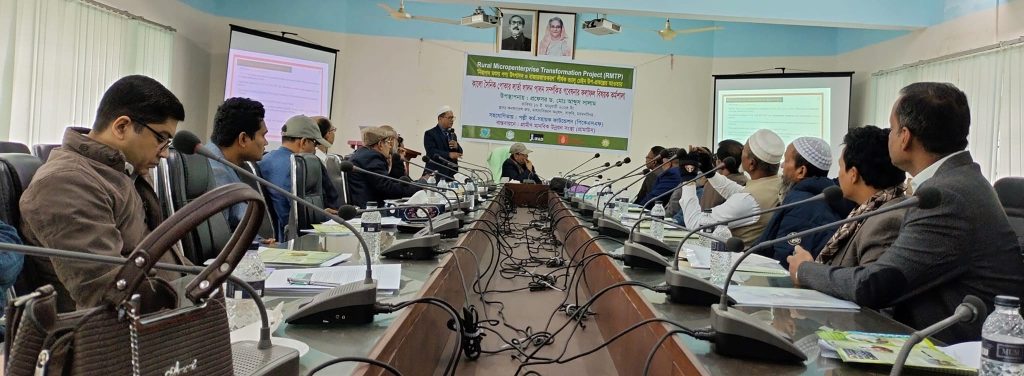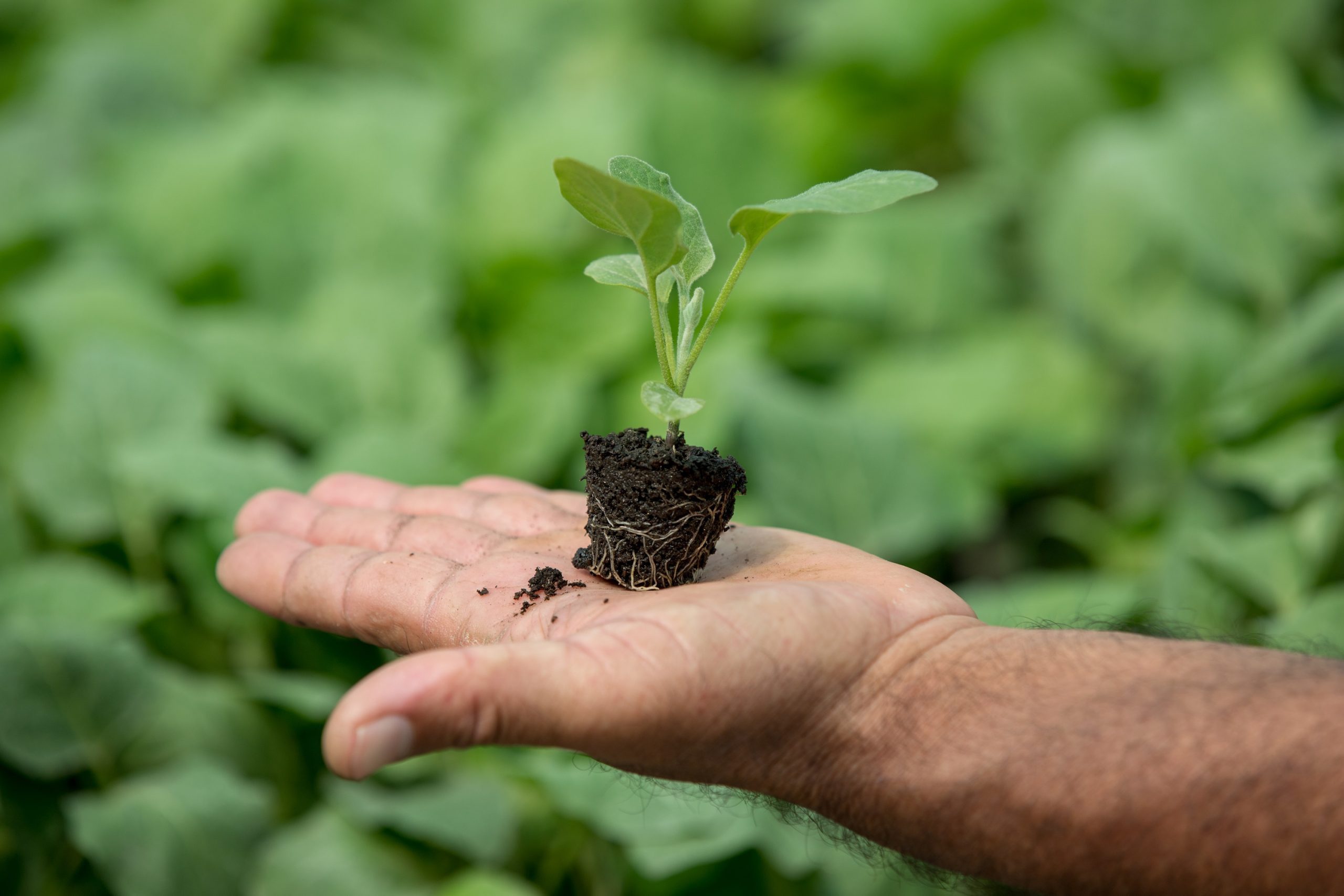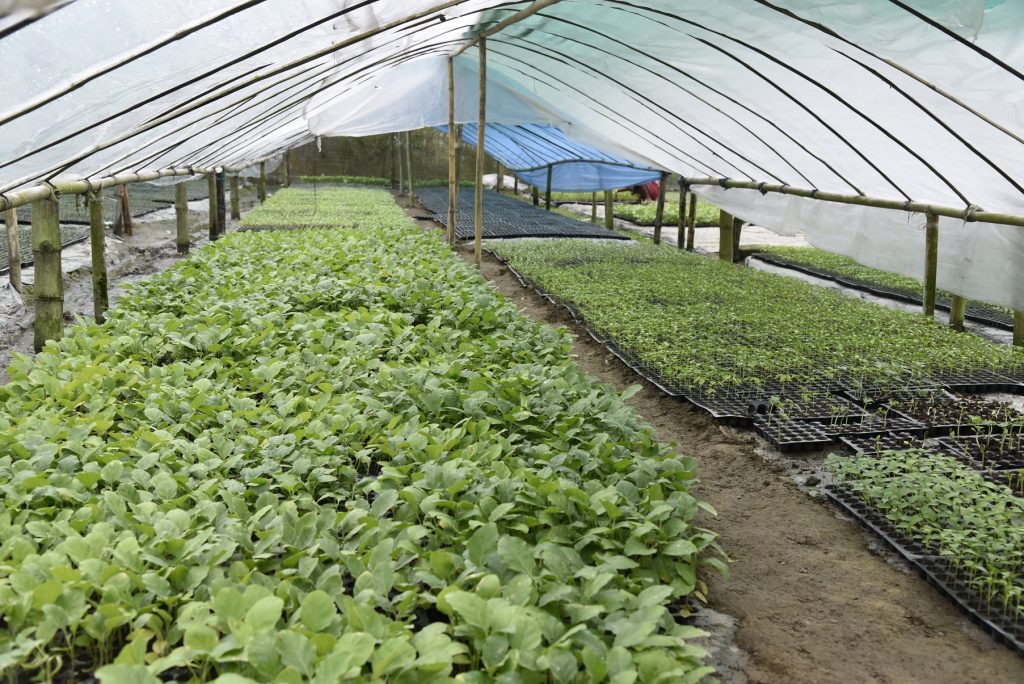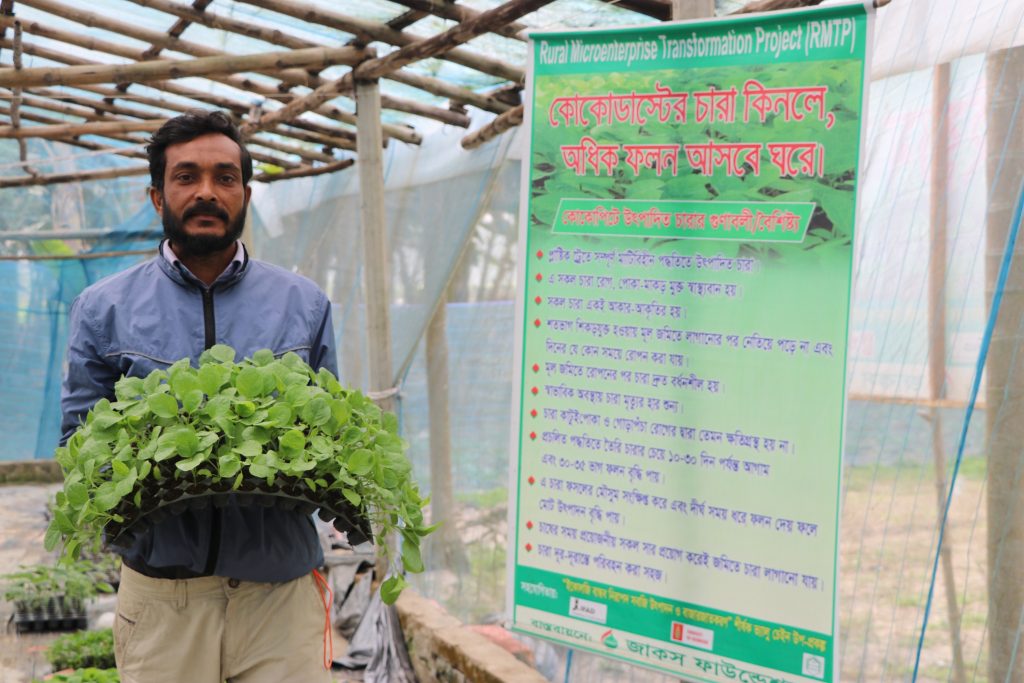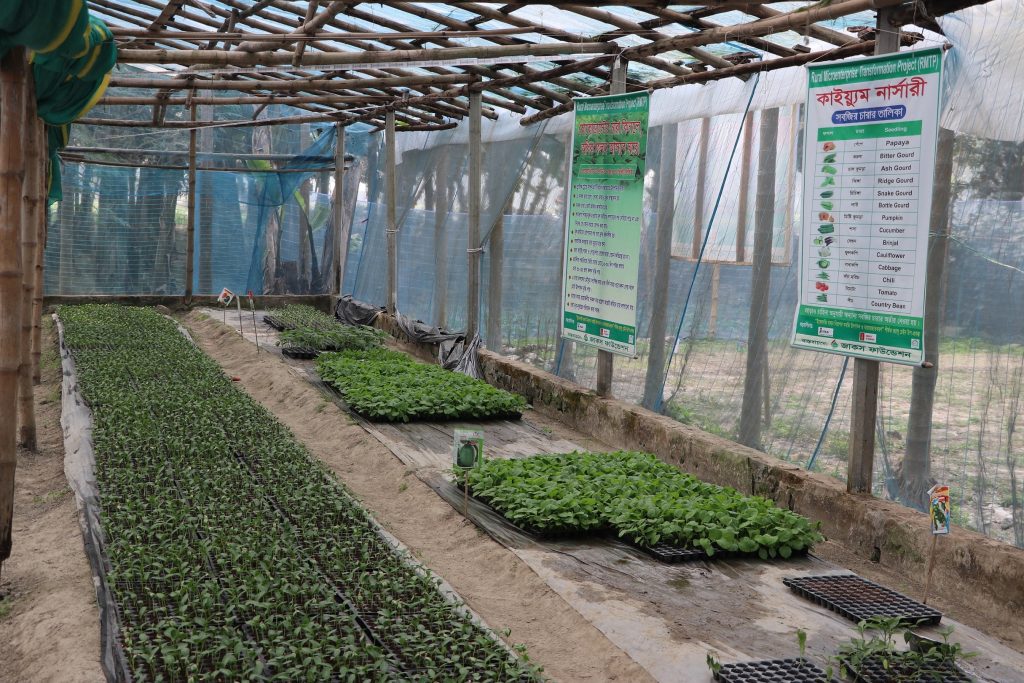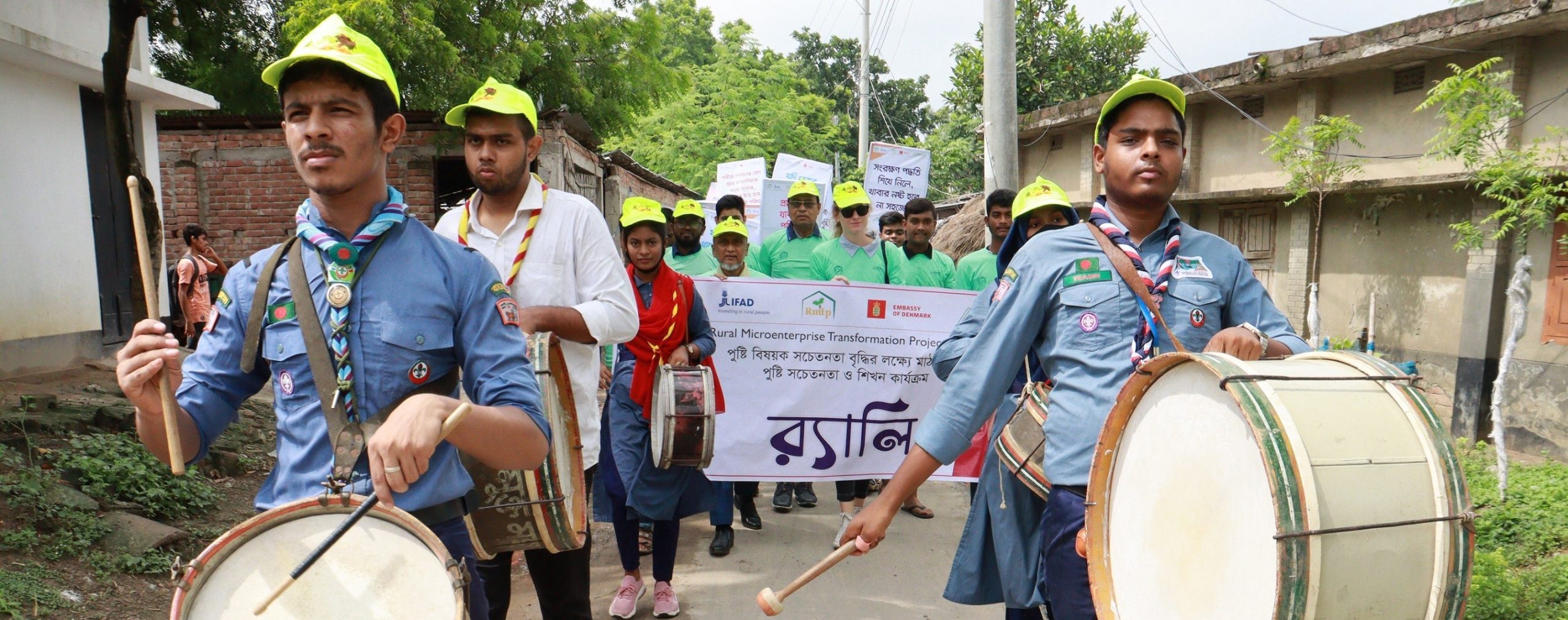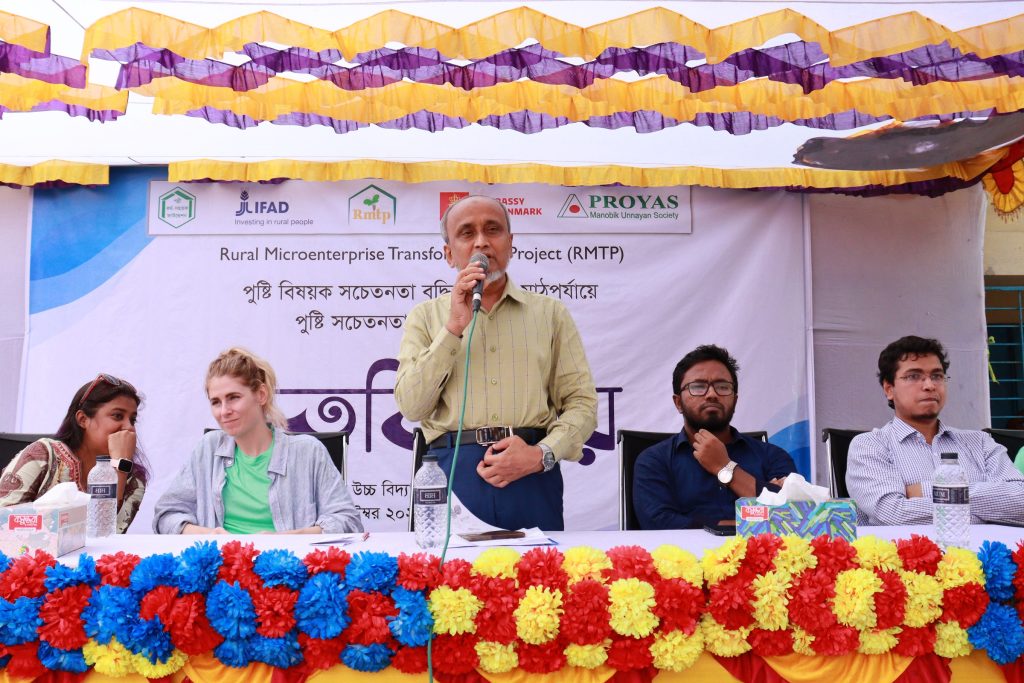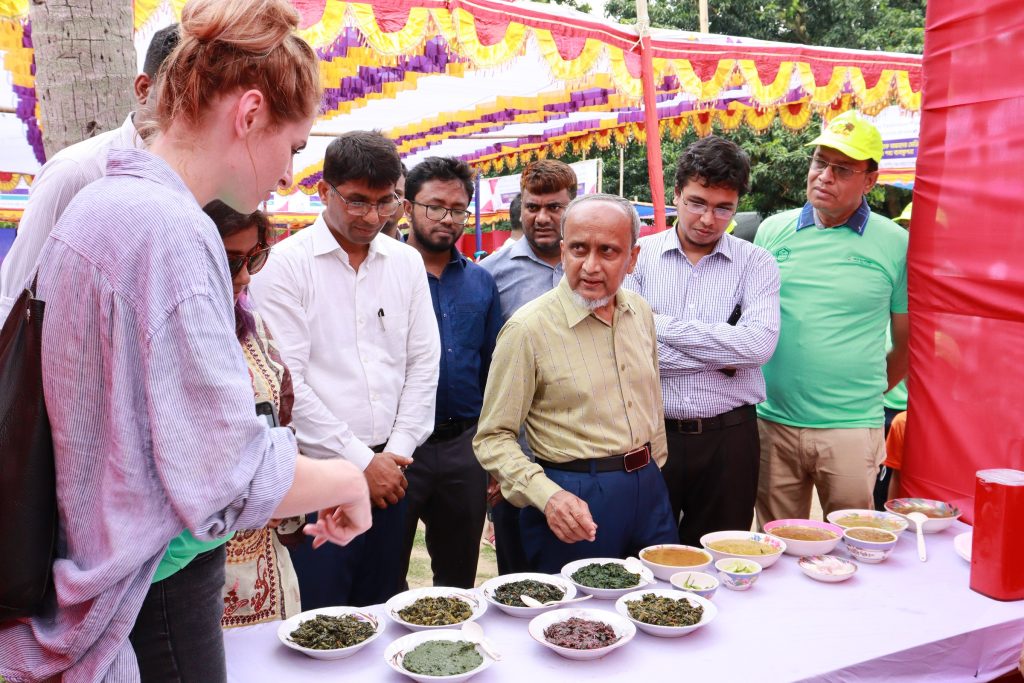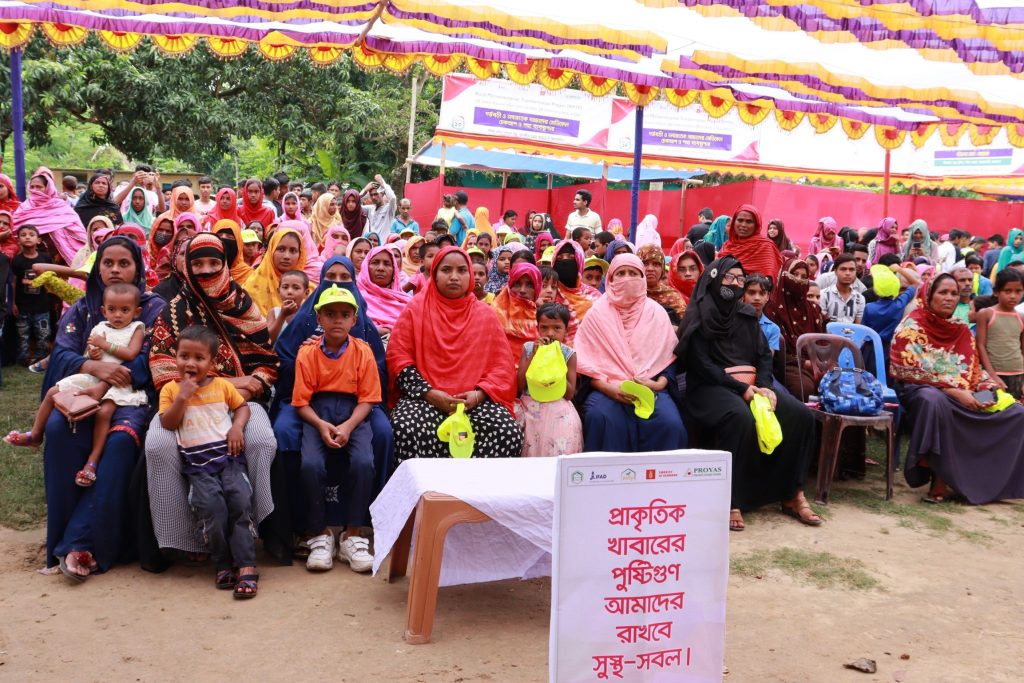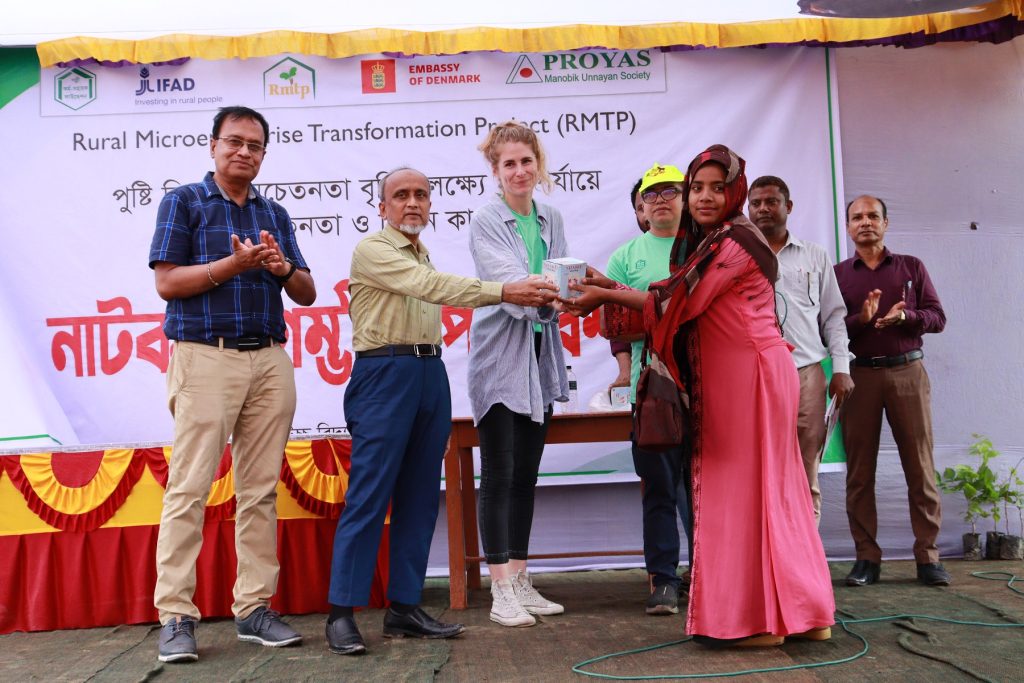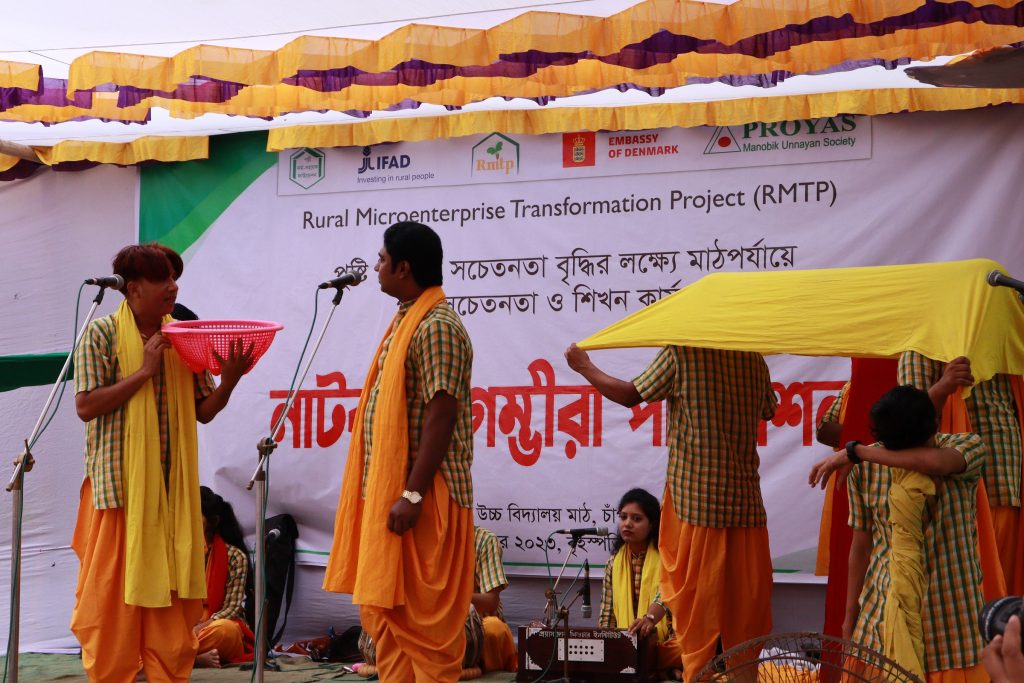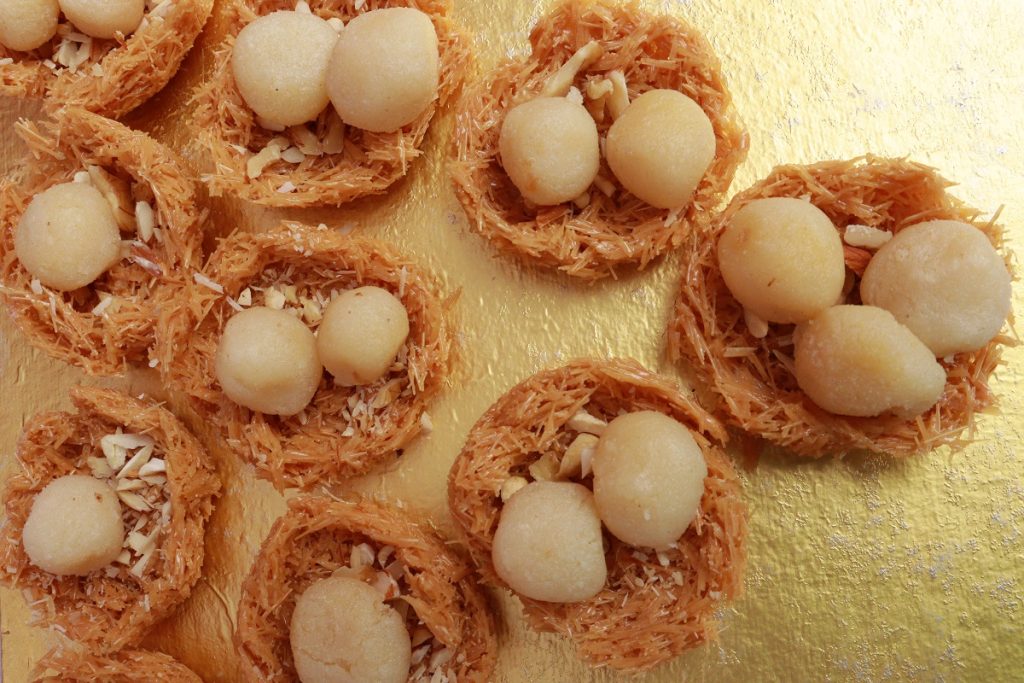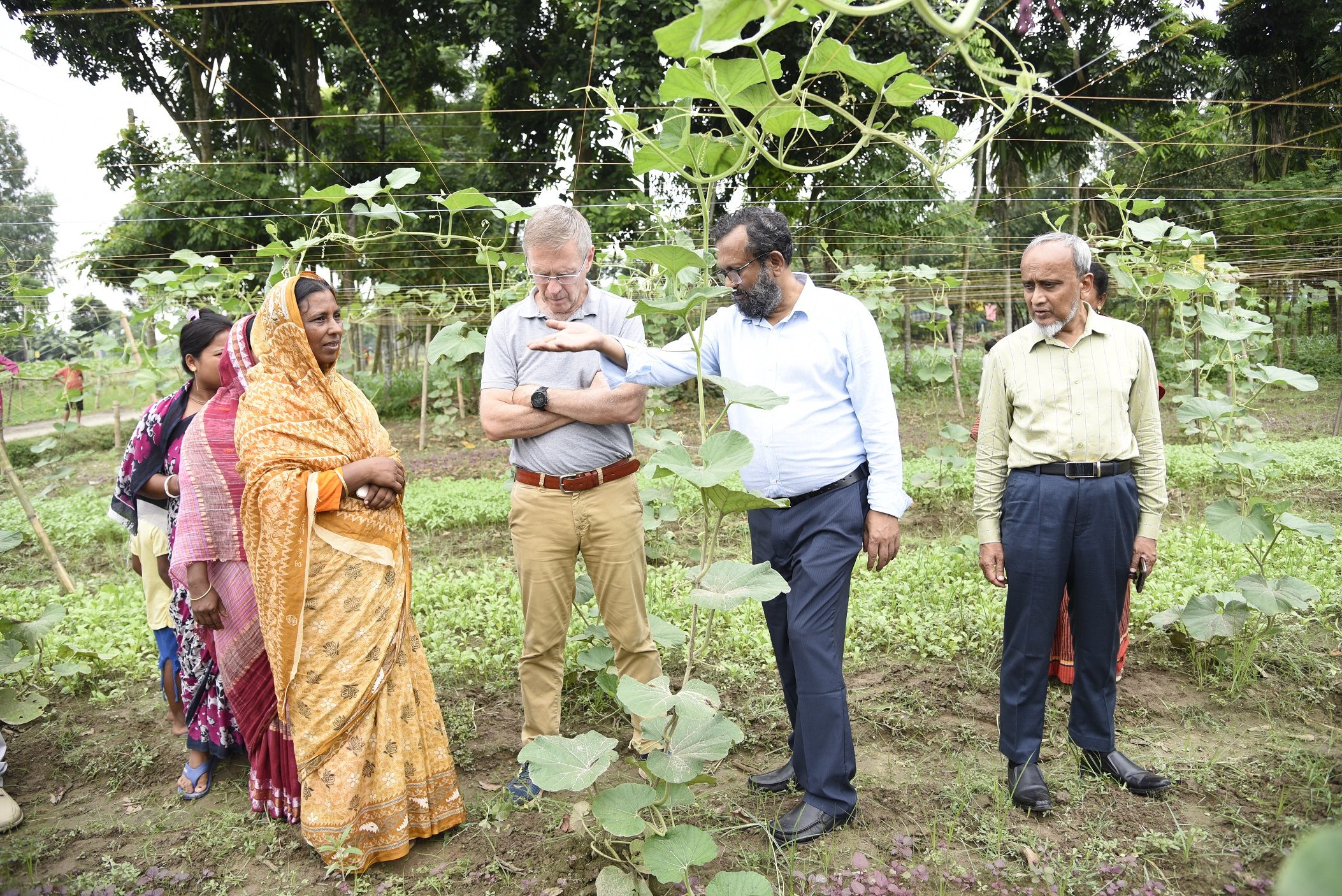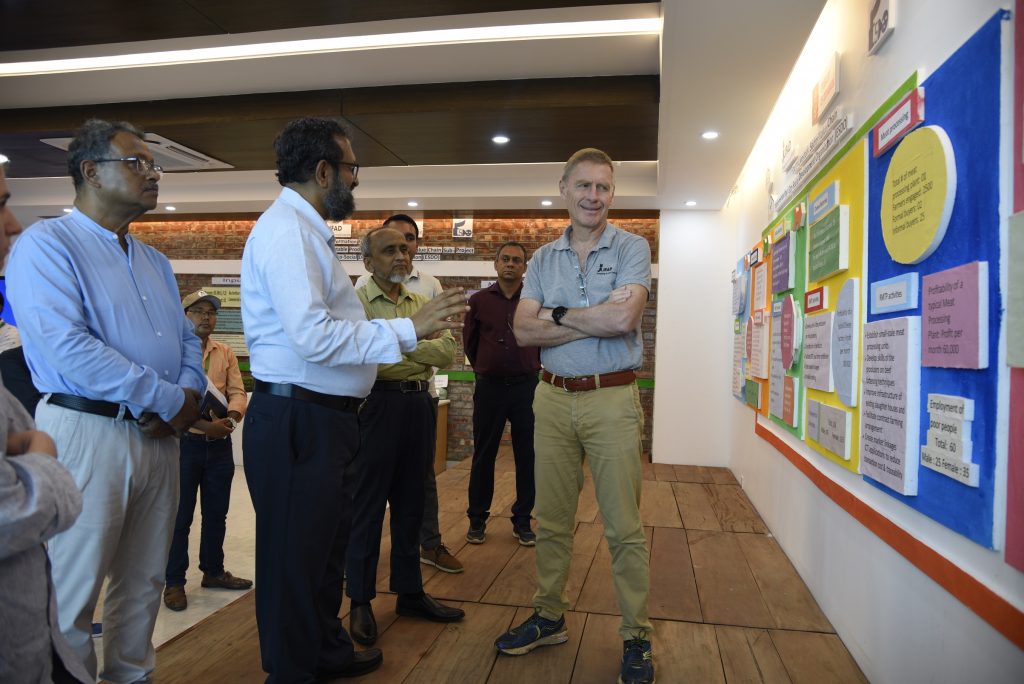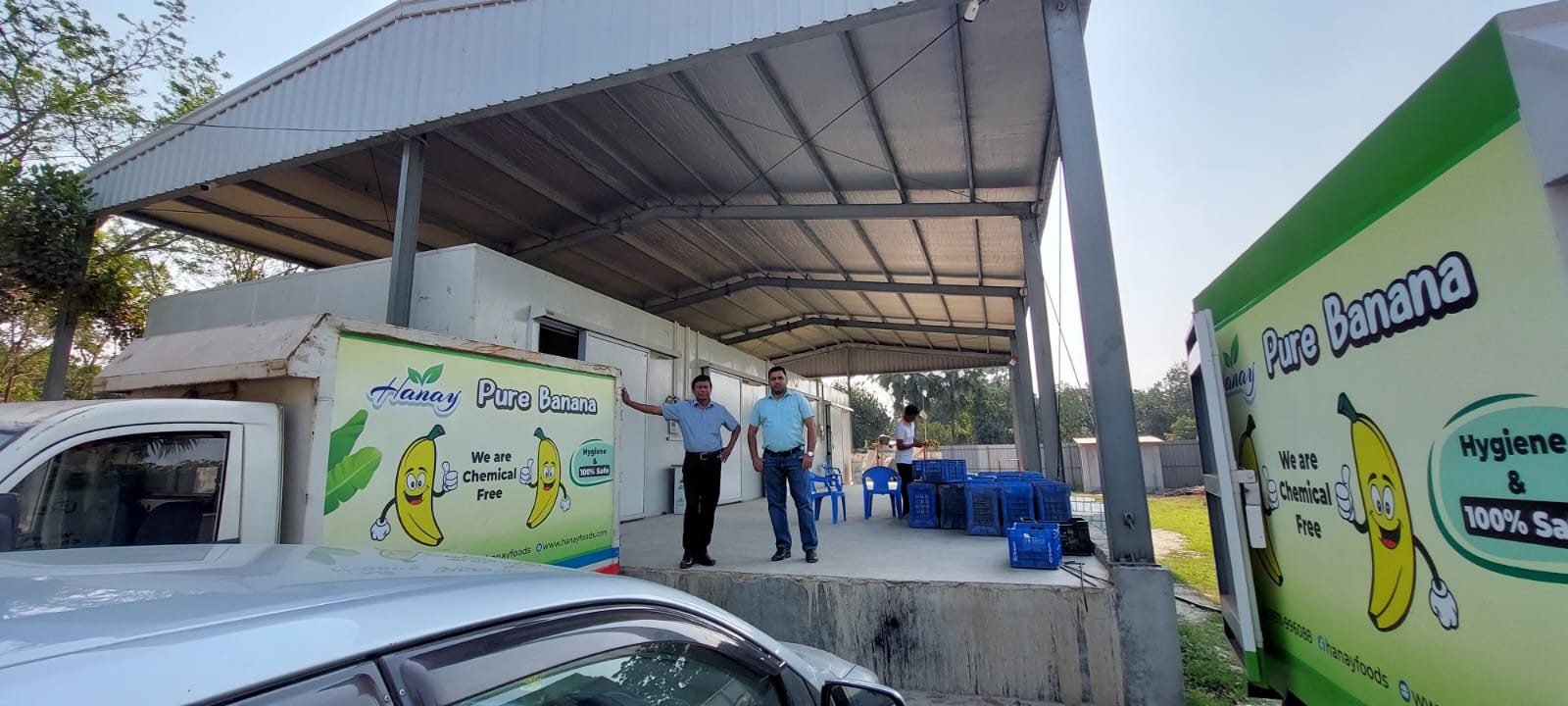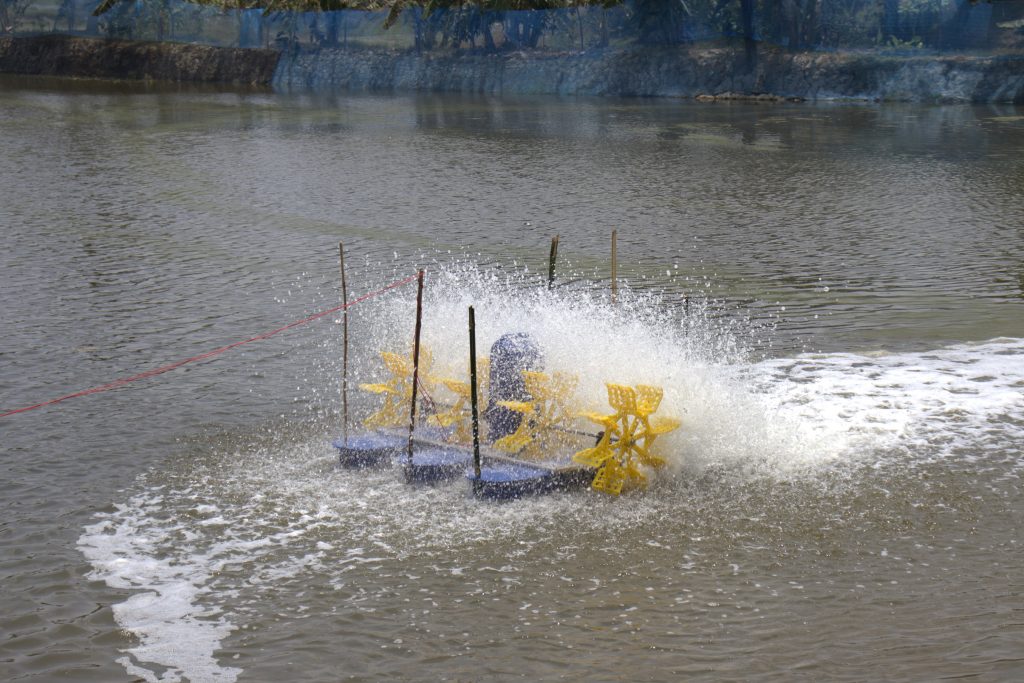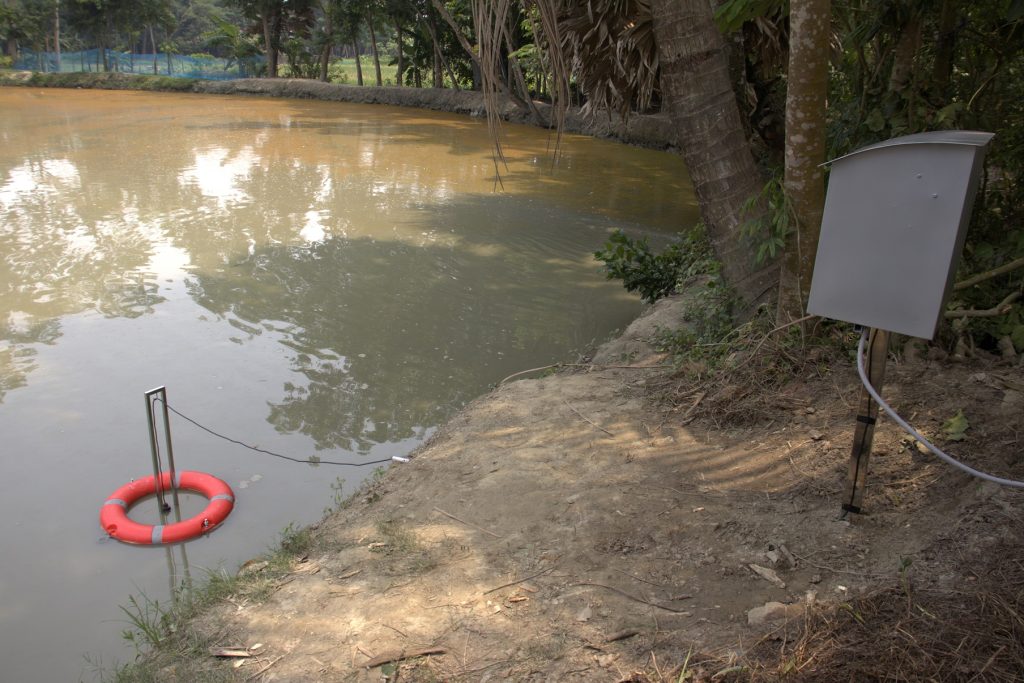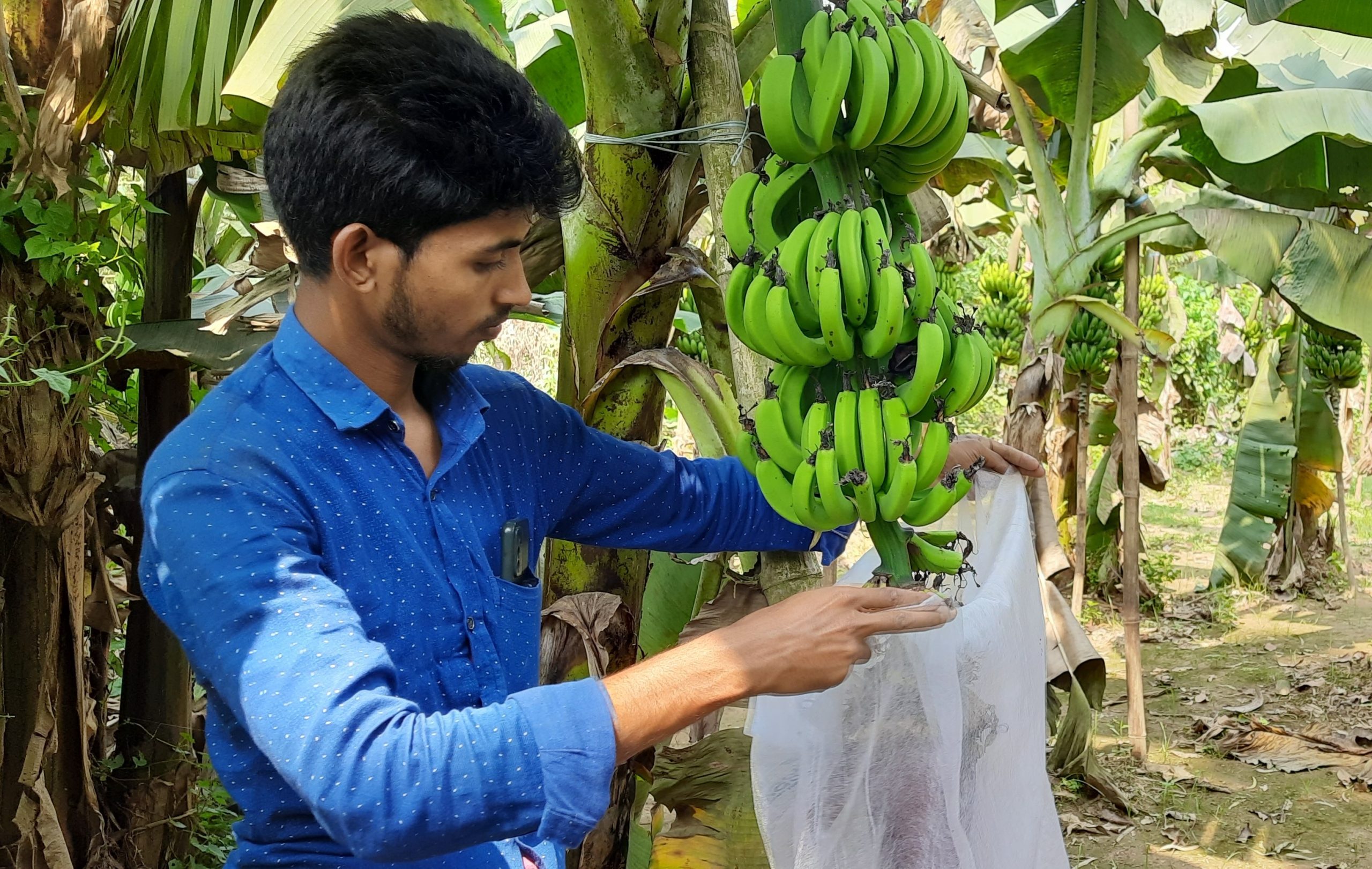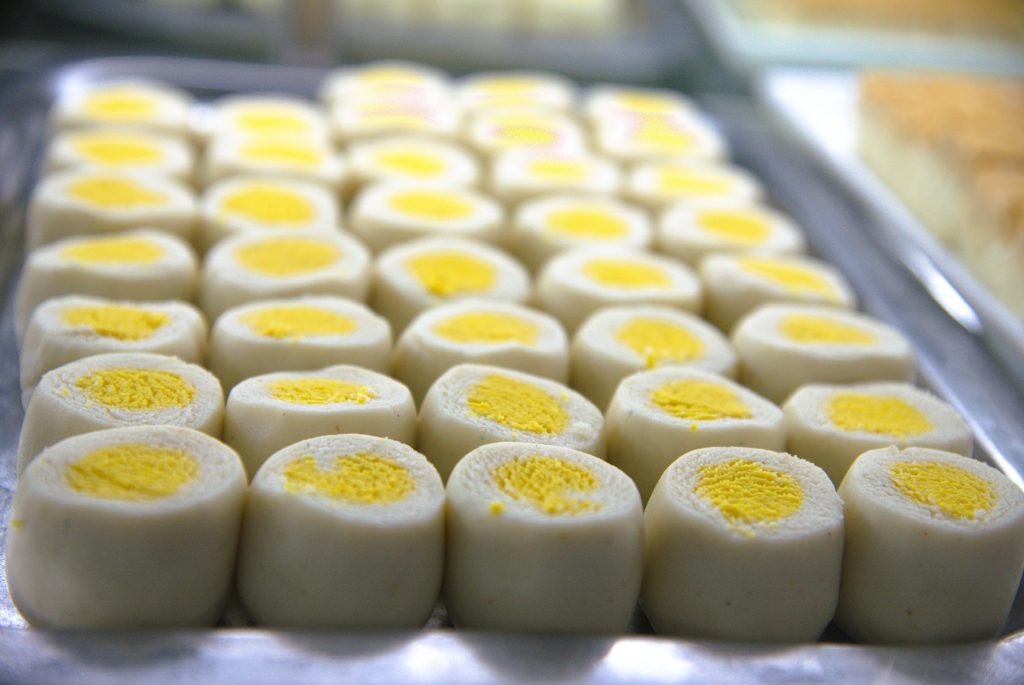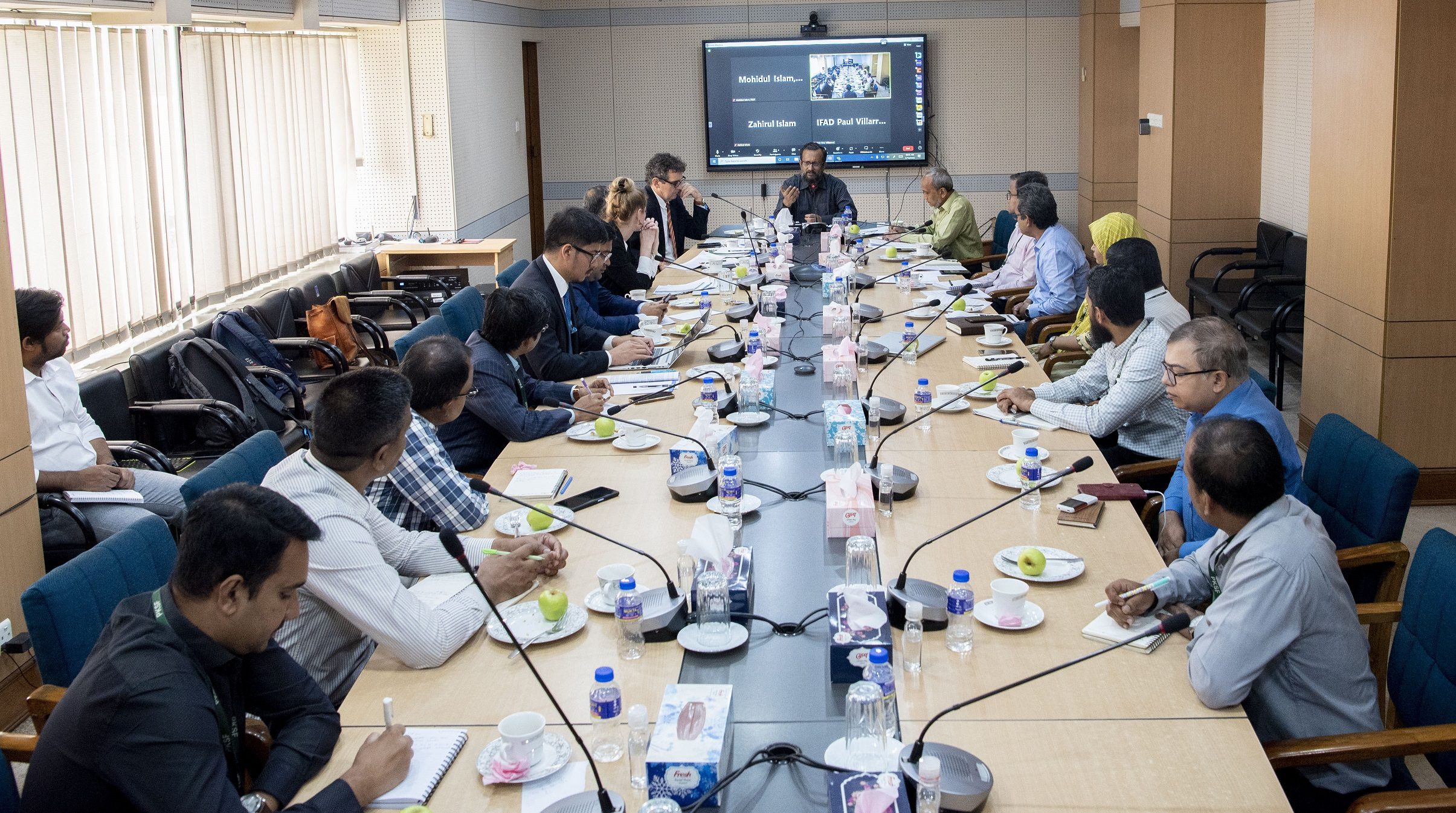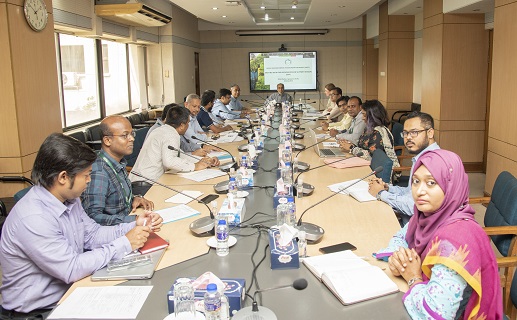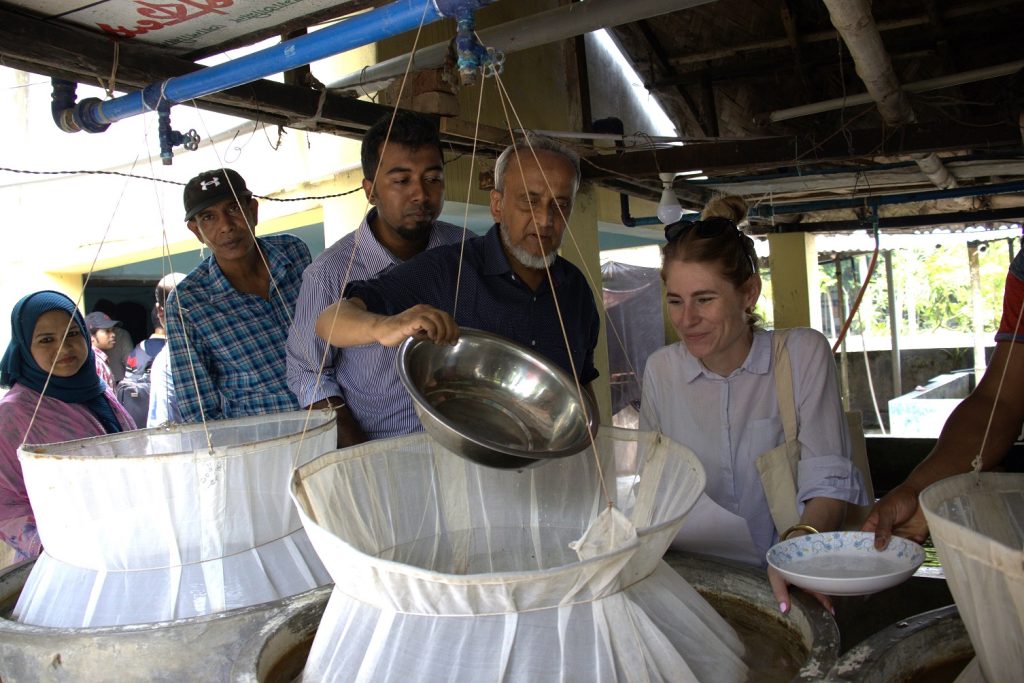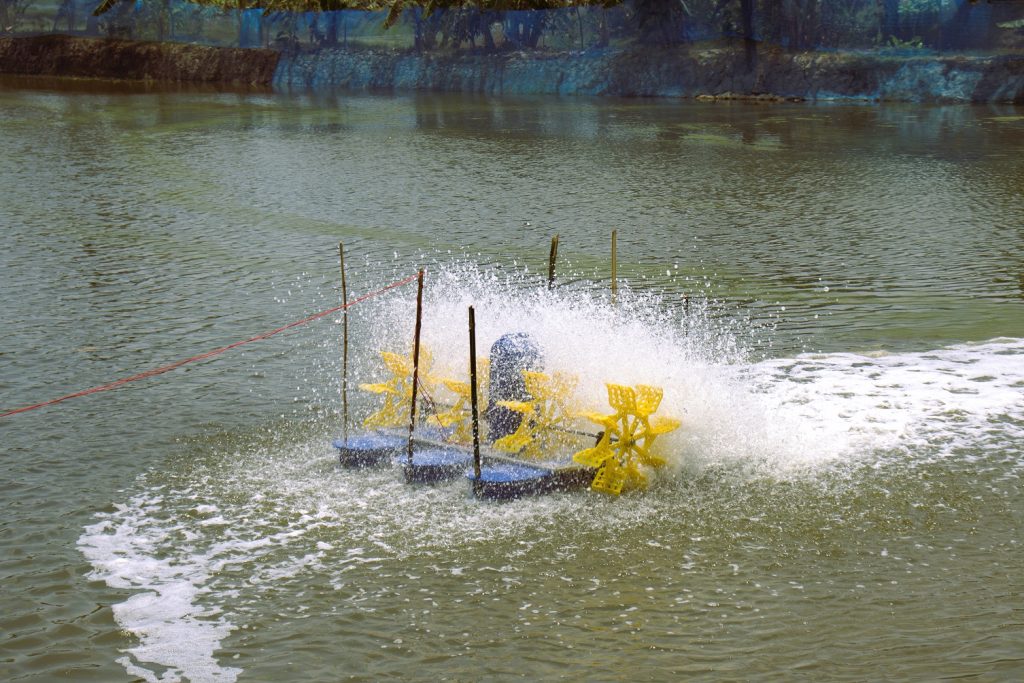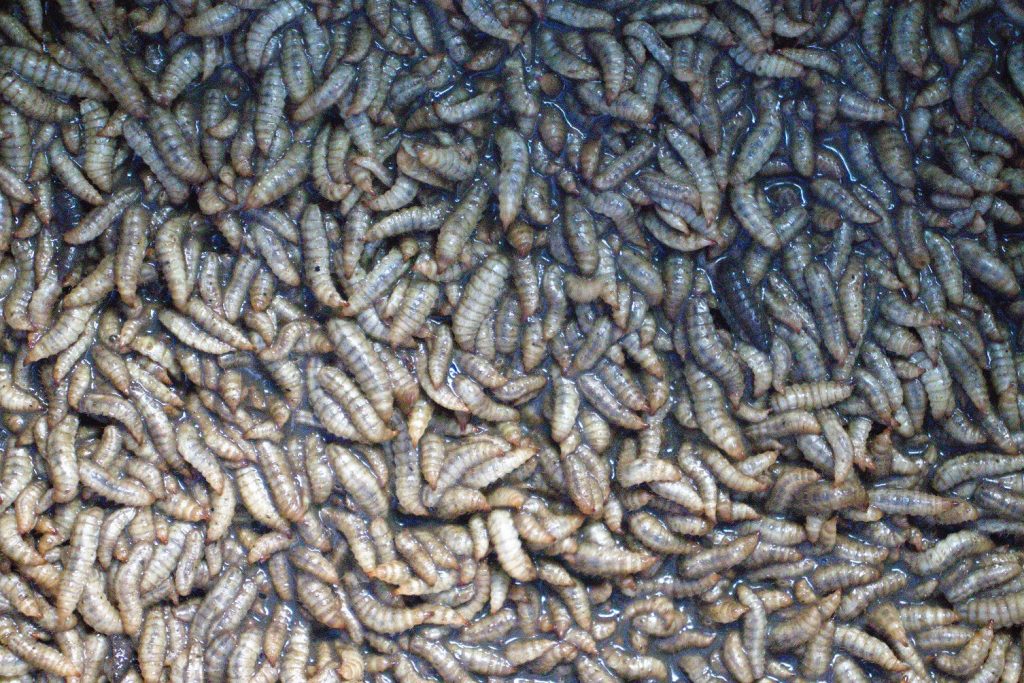Commercial Production of Packaged Milk Begins in Barishal
Mirza Ifte Khairul Hossain is a prosperous dairy entrepreneur who initiated his business on January 1, 2020, by producing 5 kg of milk on his own farm. Initially, he sold milk in plastic bottles to various grocery stores. However, due to poor packaging quality, and lack of marketing techniques, he experienced insufficient client response. In 2022, Mirza Ifte Khairul Hossain was selected as a participant in the Rural Microenterprise Transformation Project (RMTP) of PKSF. Then he received training under the RMTP on the production, packaging, marketing and branding of safe milk products. He also received a grant from the project to establish a modern chilling plant and packaging machine. Subsequently, the RMTP project made a linkage with contract farmers to increase the production of packaged milk.
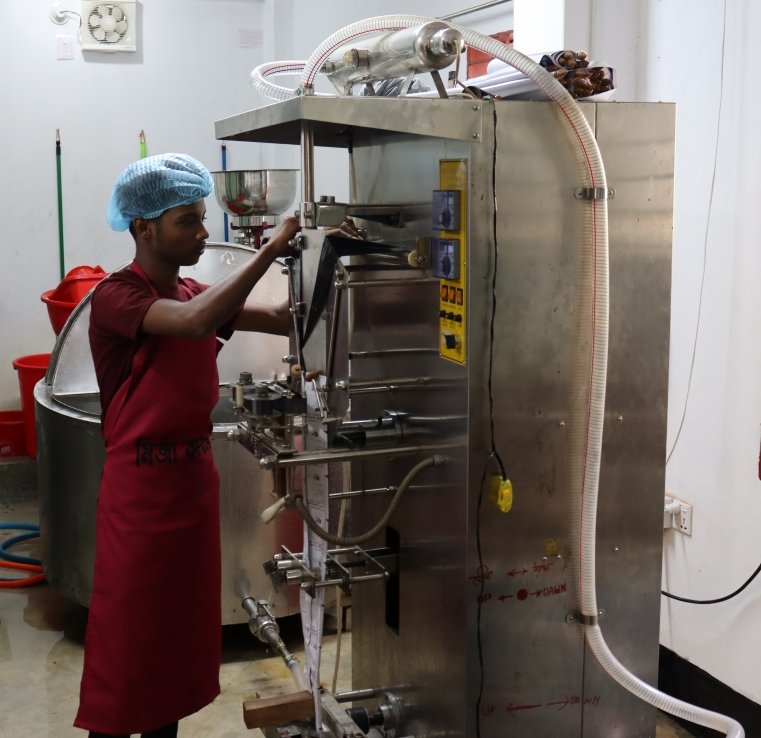
Mirza Ifte Khairul has successfully transitioned his business to selling packaged milk by leveraging modern chilling plants and milk packaging machines. In addition, he has developed his own company ‘Mirza Corporation’. In Barishal city, his company now manufactures and sells 450 liters of packaged milk every day, with 150 liters from his own farm and the rest 300 liters from 35 contracted farms.
Besides, he uses ICT technology to keep updated business records and digital payment methods. He has also secured a BSTI license, a trade license from the City Corporation of Barishal, and a health and hygiene license from the Civil Surgeon’s office to ensure the smooth operation of his business.
At present, Mirza Ifte earns BDT 1,08,000 per month by selling milk. He dreams of establishing the ‘Mirza Agro Farm’ brand and selling milk throughout the country. He has also planned to produce ghee, sweets, and curd in his product line.
